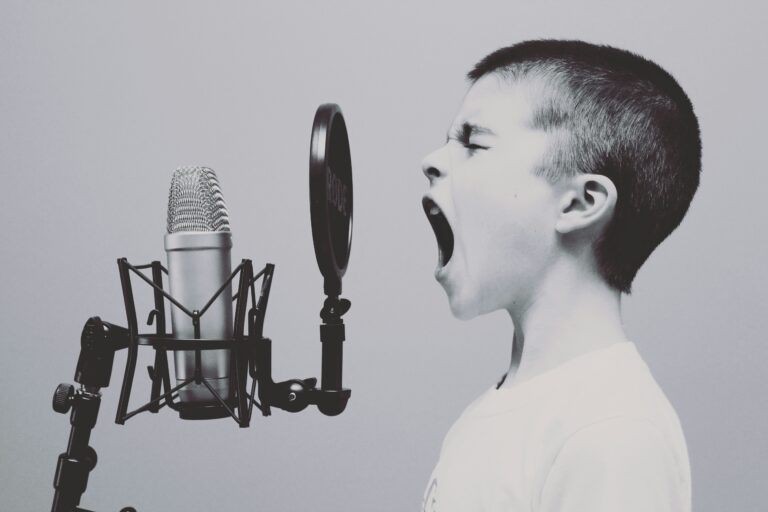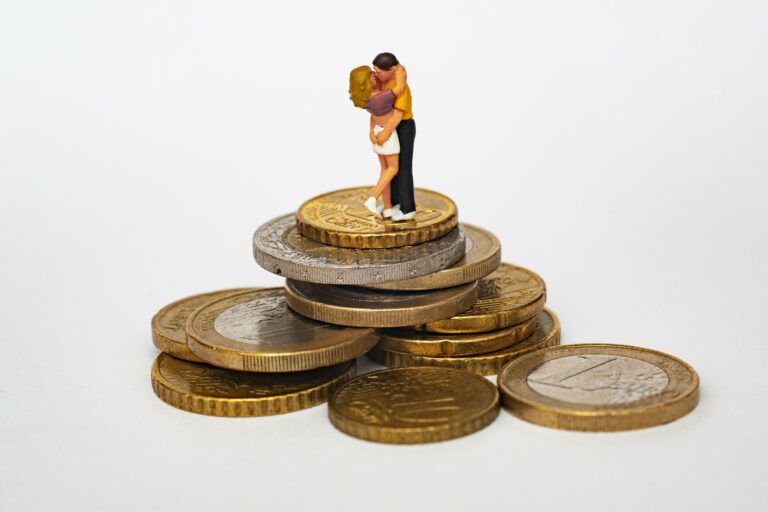Are you curious about the signs that indicate a relationship may be turning codependent? It’s important to recognize these signals early on, as they can have a significant impact on our emotional well-being and overall happiness. In a codependent relationship, one person becomes overly reliant on the other for their sense of self-worth and validation. Signs may include an intense fear of abandonment, difficulty making decisions without seeking approval, and a constant need for reassurance. By being aware of these signs, you can take proactive steps towards building healthier and more balanced relationships.
What is a codependent relationship?
A codependent relationship is a dysfunctional and unhealthy dynamic between two individuals, characterized by excessive reliance and control. In a codependent relationship, one person’s needs, desires, and emotions are often overshadowed by the needs of their partner. Codependency often stems from childhood experiences, traumatic events, or a lack of healthy relationship models. It can be harmful to both individuals involved, leading to resentment, low self-esteem, and a perpetual cycle of enabling destructive behaviors. Understanding the signs and characteristics of a codependent relationship is crucial in order to address and overcome this detrimental pattern of behavior.
Definition of codependency
Codependency can be defined as an excessive emotional or psychological reliance on another person, often accompanied by a lack of personal boundaries and a diminished sense of self. In a codependent relationship, one person assumes the role of the caretaker, always putting their partner’s needs above their own. This behavior may be driven by a deep fear of abandonment and a desperate desire for validation and approval. Codependency can manifest in various forms, such as control and manipulation, people-pleasing behavior, and neglecting personal interests.
Characteristics of a codependent relationship
Codependent relationships exhibit several common characteristics that distinguish them from healthy and balanced partnerships. These characteristics include:
-
Overreliance on the partner: In a codependent relationship, one person becomes overly dependent on their partner for their emotional well-being, decision-making, and even financial stability.
-
Lack of personal boundaries: Codependent individuals often struggle to establish and maintain personal boundaries. They may have difficulty saying no or setting limits, leading to a constant invasion of their personal space.
-
Low self-esteem: Individuals in codependent relationships often suffer from low self-esteem, seeking validation and self-worth from their partner. They may constantly criticize themselves and doubt their own abilities, feeling unworthy of love and happiness.
-
People-pleasing behavior: Codependent individuals tend to prioritize their partner’s needs and desires above their own. They may avoid conflict at all costs in an effort to maintain peace in the relationship, neglecting their own interests and aspirations.
-
Control and manipulation: Codependent relationships can be characterized by excessive jealousy, possessiveness, and emotional manipulation. One partner may monitor the other’s activities, isolate them from loved ones, and use guilt to maintain control.
-
Caretaking and enabling: In a codependent relationship, one person often takes on the role of a caretaker or fixer. They enable the destructive behaviors of their partner, neglecting their own needs in an attempt to keep the relationship intact.
-
Fear of abandonment: Codependent individuals experience a constant fear of their partner leaving them. This fear can lead to jealousy, insecurity, and a reluctance to address conflicts, as they believe it may result in the end of the relationship.
-
Difficulty expressing needs: Codependent individuals often struggle to express their own needs and desires, fearing rejection or conflict. They may suppress their own emotions and prioritize their partner’s happiness above their own.
-
Obsession with the partner: Codependent individuals may become obsessed with their partner, constantly thinking about them and fearing losing their presence in their lives. Their thoughts, actions, and interests revolve solely around the relationship.
-
Neglecting personal interests and priorities: In a codependent relationship, individuals often lose sight of their own identity and neglect pursuing personal goals and passions. They may sacrifice their own happiness to cater to the needs of their partner, feeling guilty when investing time and energy in personal development.
Signs of a codependent relationship

Overreliance on the partner
One of the significant signs of a codependent relationship is a constant need for validation and approval from the partner. In this dynamic, you rely heavily on your partner’s praise and affirmation to feel worthy, which can result in seeking their approval for even the simplest decisions. You may hesitate to make choices without consulting your partner, fearing their disapproval or rejection. Additionally, when your partner is unavailable, whether physically or emotionally, you may feel helpless and lost, as if you cannot function without their support. This overreliance can also extend to financial dependence on the partner, relying on them for financial security and stability.
Lack of personal boundaries
Another clear sign of a codependent relationship is a difficulty in saying no or setting limits. You may find yourself constantly accommodating your partner’s requests and disregarding your own needs and desires. This lack of personal boundaries can lead to frequent invasion of personal space, with your partner expecting access to your physical and emotional world without respecting your autonomy. The relationship may become one where you are emotionally enmeshed, with the lines between your feelings and your partner’s feelings blurred. Your focus may solely revolve around meeting your partner’s needs, leaving little room for your own self-care and personal growth.

Low self-esteem
In a codependent relationship, low self-esteem is often prevalent. You seek validation and self-worth from your partner, relying on their acceptance to feel good about yourself. Constant self-criticism and self-doubt plague your mind, making it difficult to trust in your own abilities and value. You may feel unworthy of love or happiness, believing that you need to rely on your partner to feel whole. This deep-rooted sense of insecurity can lead to a fear of being alone, driving you to cling onto the relationship at all costs.
People-pleasing behavior
Codependent individuals tend to prioritize their partner’s needs and desires above their own, engaging in people-pleasing behavior. You may go to great lengths to avoid conflict and maintain harmony in the relationship, even if it means neglecting your own interests and aspirations. Your main goal becomes keeping your partner happy, often at the expense of your own well-being. Asserting personal boundaries may be challenging for fear of disappointing or upsetting your partner. Consequently, you may experience guilt when you do assert yourself, feeling as though you are letting your partner down.

Control and manipulation
Control and manipulation play a significant role in codependent relationships. Excessive jealousy and possessiveness can arise as you fear losing your partner’s affection and attention. You may find yourself constantly monitoring their activities, invading their privacy, and making unfounded accusations. Emotional manipulation tactics, such as guilt-tripping or gaslighting, can also be employed to maintain control over your partner. Moreover, codependency can lead to isolating your partner from their friends and family, aiming to have complete influence over them.
Caretaking and enabling
In a codependent relationship, you may assume the role of a caretaker or fixer. Your focus shifts entirely to taking care of your partner’s needs, often neglecting your own in the process. You may find yourself enabling their destructive behaviors, such as addiction or irresponsibility, by shield-pleasing behavior, such as addiction or irresponsibility, by shielding them from the consequences of their actions. The underlying belief is that taking care of your partner will lead to their happiness and ultimately maintain the relationship. This cycle of caretaking and enabling can lead to the erosion of your own well-being.
Fear of abandonment
A fear of abandonment is a common characteristic of codependent relationships. You constantly worry about your partner leaving you, sowing seeds of insecurity and doubt in the relationship. This fear can manifest itself through jealousy, questioning your partner’s loyalty, or overreacting to perceived threats to the relationship. To prevent the possibility of abandonment, you may avoid conflict and even sacrifice your own happiness and needs. Your fear of being alone and without the relationship becomes a driving force in your behavior and decision-making.
Difficulty expressing needs
Codependent individuals often struggle to express their own needs and desires. A lack of self-worth and fear of rejection may hinder your ability to communicate effectively. You may find it challenging to assert personal boundaries, fearing that your partner may become upset or withdraw their affection. This difficulty in expressing needs can also lead to a suppression of emotions, as you constantly prioritize your partner’s feelings over your own. As a result, your needs may go unmet, leaving you feeling unheard and neglected.
Obsession with the partner
An obsession with your partner is a telltale sign of a codependent relationship. Your thoughts, actions, and interests revolve solely around your partner, leaving little room for your own individuality. You may constantly think about your partner, even in their absence, and become anxious or agitated when they are not around. This obsession can consume your time and energy, preventing you from pursuing your own personal interests and goals. Your identity can become merged with your partner’s, making it difficult to maintain a sense of self outside of the relationship.
Neglecting personal interests and priorities
Codependent relationships often lead to neglecting personal interests and priorities. You may gradually lose sight of your own individual identity, as your main focus becomes catering to your partner’s needs and desires. The pursuit of personal goals and passions takes a back seat to maintaining the relationship and ensuring your partner’s happiness. You may find yourself feeling guilty when investing time and energy in personal development, perceiving it as selfish or neglectful. As a result, your personal growth may stagnate, leaving you unfulfilled and disconnected from your own aspirations.
In conclusion, a codependent relationship can have detrimental effects on both individuals involved. From an overreliance on the partner to a neglect of personal interests, the signs of codependency are clear indicators of an unhealthy dynamic. Recognizing these signs and understanding the characteristics of a codependent relationship are the first steps towards breaking free from codependency and fostering a healthier, more balanced partnership. By prioritizing self-care, establishing boundaries, and seeking professional help if necessary, it is possible to create a more fulfilling and mutually supportive relationship. Remember, your happiness and well-being should never be solely dependent on someone else, and you deserve love and respect as an individual.






